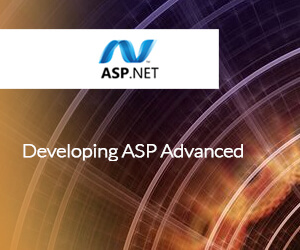Key Areas:
- Model-View-Controller (MVC) Pattern.
- ASP.NET Core Features.
- Security.
- Performance Optimization..
- Scalability and Cloud Deployment.
- Web APIs.
- SignalR.
- Testing.
- Deployment and CI/CD..
Fundamentals:
- MVC pattern with advanced routing, custom controllers, and dependency injection.
- Core features like middleware, filters, logging, configuration, and health checks.
Security:
- Implement robust authentication, secure coding practices, and mitigate web vulnerabilities.
Performance:
- Optimize with caching, code profiling, and load balancing strategies.
Scalability:
- Deploy to cloud platforms and leverage containerization for microservices.
APIs:
- Build and version RESTful APIs for data and functionality exposure.
Real-time:
- Enable real-time communication with SignalR.
Testing:
- Implement unit, integration, and end-to-end testing strategies.
Deployment:
- Automate build, test, and deployment with CI/CD pipelines.
Advanced C#:
- Utilize generics, asynchronous programming, and lambda expressions.
Design Patterns:
- Apply repository, unit of work, and factory patterns for better code organization.
Front-end Integration:
- Integrate with JavaScript frameworks and consume APIs from client-side code.
Building upon the foundation of ASP.NET fundamentals and basic C# programming, here are the essential prerequisites for delving into advanced development:
Solid understanding of:
- ASP.NET Core concepts: Familiarity with the core functionalities of ASP.NET Core, including MVC pattern, Razor syntax, dependency injection, and middleware.
- C# programming: Proficiency in C# programming fundamentals, including object-oriented programming concepts, data structures, and control flow statements.
- Database access: Understanding of database concepts and experience working with relational databases (e.g., SQL Server, MySQL) for data persistence.
- HTML, CSS, and JavaScript: Basic knowledge of front-end technologies like HTML, CSS, and JavaScript for interacting with the user interface.
